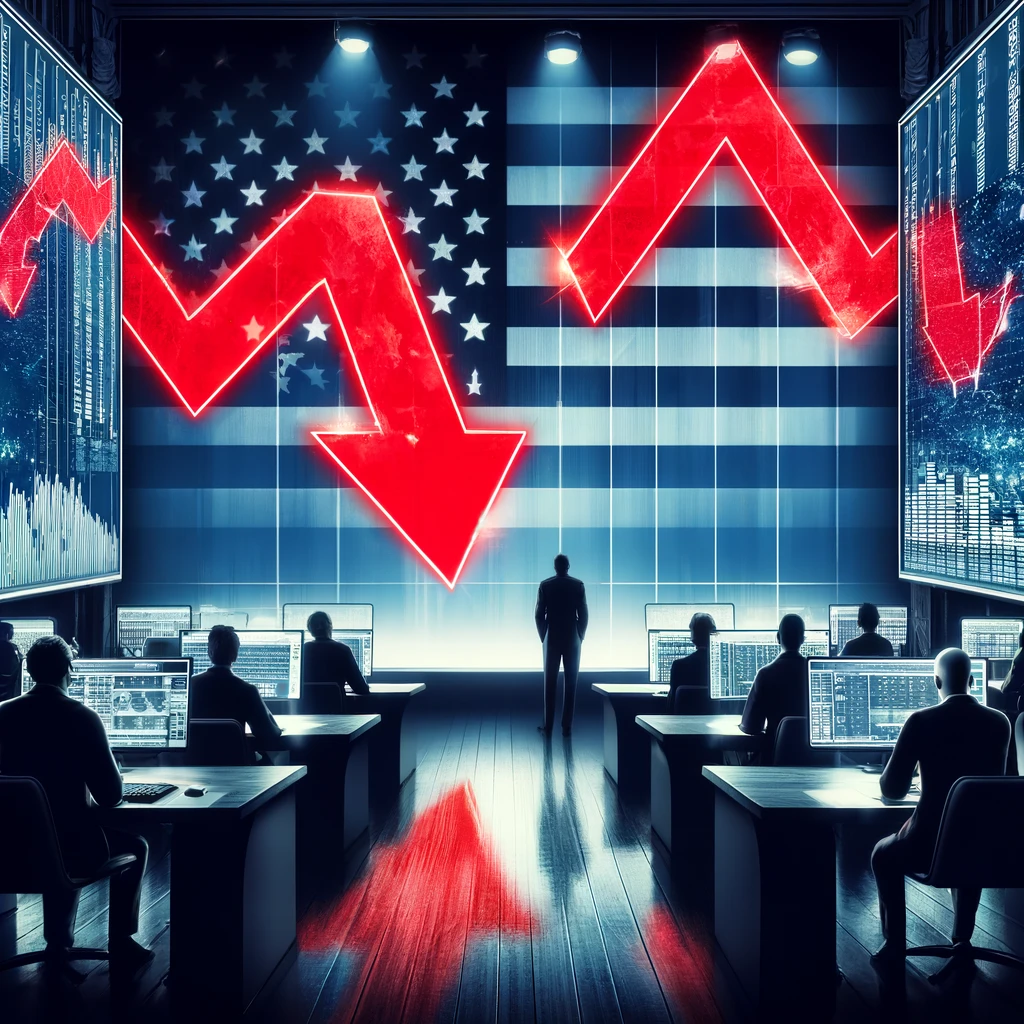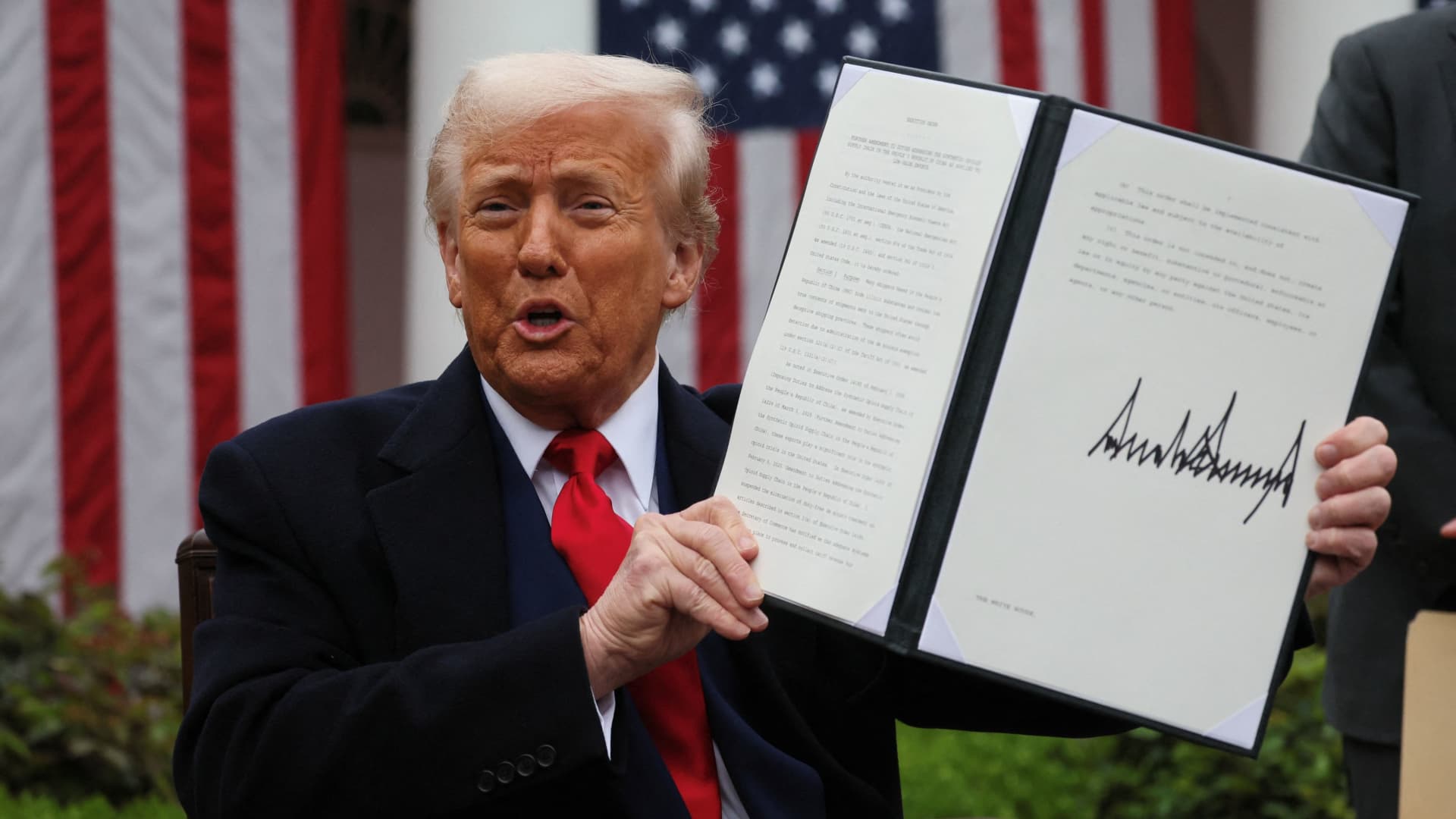Why the Stock Market Is Down Today

The stock market’s recent downturn has left many investors puzzled and concerned. Understanding the factors behind this decline is crucial for making informed investment decisions. In this article, we’ll delve into the primary reasons causing the market slump, focusing on the impact of recent tariff implementations and economic uncertainties.
The recent downturn in the stock market has raised concerns among investors and analysts alike. Understanding the underlying causes of this decline is essential for navigating the current financial landscape. This article explores the primary factors contributing to the market’s slump, with a particular focus on the recent tariff implementations and the resulting economic uncertainties.
The Role of Tariffs in the Market Decline
In recent weeks, President Trump announced a series of extensive new tariffs, collectively referred to as the “Liberation Day” tariffs. These tariffs target approximately $2.5 trillion worth of imports, affecting countries such as Vietnam, Cambodia, and Bangladesh, with rates reaching as high as 49%. The immediate market reaction was negative, with significant sell-offs and increased volatility as investors grappled with the potential economic implications.
Impact on Major Industries
Fashion Industry:
The fashion sector has been notably impacted by the new tariffs. U.S. fashion brands that rely heavily on imports from the targeted countries are facing an “existential threat.” Companies like Nike, Gap, and Ralph Lauren experienced stock price declines of up to 30%. Executives are now implementing emergency strategies to manage rising costs, including evaluating supply chain adjustments and considering price increases for consumers. The National Retail Federation has warned of severe consequences, including job losses and reduced consumer confidence, if the tariffs remain in place.
Technology Sector:
The technology sector, particularly companies that had previously seen substantial growth, has also suffered. For instance, Nvidia’s stock fell by 5.1%, contributing to a year-to-date loss of over 20%. Similarly, Tesla experienced a 15.4% drop, deepening its 2025 loss to 45%. These declines reflect investor concerns about the sector’s vulnerability to trade policies and the broader economic impact of the tariffs.
Transportation and Logistics:
Companies in the transportation and logistics industry, such as FedEx, have reported disappointing outlooks, citing “weakness and uncertainty in the U.S. industrial economy.” The anticipation of reduced shipping volumes due to decreased trade activity has led to earnings cuts and contributed to the overall market decline.
Investor Sentiment and Consumer Confidence
The implementation of tariffs has led to increased market volatility and a decline in investor sentiment. Concerns about rising costs and potential job losses have also affected consumer confidence, leading to reduced spending. Companies like Nike have warned that sales may miss expectations due to falling consumer confidence, further exacerbating market concerns.
Government’s Stance and Economic Outlook
Despite the market’s negative reaction, top administration officials, including Treasury Secretary Scott Bessent and White House adviser Peter Navarro, have defended the tariff policies. They predict a long-term economic boom, emphasizing job growth and arguing that the tariffs are a strategic adjustment to correct trade imbalances. However, critics remain skeptical, particularly regarding the immediate negative impact on consumers and the potential for a recession.
Historical Context and Comparisons
Historically, trade wars and tariff implementations have led to market declines and economic slowdowns. The current situation draws parallels to previous instances where protectionist policies resulted in reduced international trade and strained economic relations. These historical lessons underscore the potential risks associated with the current tariff strategies.
Global Implications
The U.S. tariffs have not only affected domestic markets but have also sent shockwaves through global economies. Foreign governments are considering retaliatory measures, raising fears of a full-blown trade war. Such actions could further disrupt global trade relations and have long-term implications for international economic stability.
Potential for a Financial Crisis
Analysts have expressed concerns that the current stock market sell-off could escalate into a broader financial crisis. Comparisons have been made to the 2008 financial collapse, with warnings about increased uncertainty and systemic risks. The compounding effects of policy decisions and market mechanics have elevated the chances of a significant economic breakdown.
Investor Strategies Moving Forward
During periods of high market volatility, investors are advised to exercise caution and consider diversifying their portfolios to mitigate risks. Maintaining a long-term investment perspective can help navigate short-term market fluctuations. Consulting with financial advisors to develop strategies tailored to individual risk tolerance and financial goals is also recommended.
Conclusion
The recent stock market decline is primarily attributed to the uncertainty surrounding the implementation of new tariffs and their potential economic impact. While government officials predict long-term benefits, the immediate market reaction reflects concerns about rising costs, reduced consumer confidence, and the possibility of a recession. Investors are encouraged to stay informed, consider diversification strategies, and consult with financial professionals to navigate this period of uncertainty.



